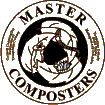Master Composter Program Details
Qualification for Trainees
In addition to a basic interest in composting and community outreach, applicant qualifications include, but are not limited to, the following:
- Curiosity to expand their understanding of the composting process
- Enthusiasm to share their knowledge and skills with others
- Good communication skills—verbal or written
- Willingness to participate in a variety of Program-sponsored events
- Ability to honor the minimum time commitments to the Program
All County residents are eligible to apply. Anyone interested in becoming a Master Composter should contact Cooperative Extension. Trainee selection is made after completion of both a written application and a personal interview.
TRAINING (TOTAL 40 HOURS)
Classroom Sessions
Ten 2-hour classroom sessions are scheduled one evening per week for ten weeks in the late winter and early spring. Topics include: an overview of waste management and the special environmental role of composting; the basic science of composting; techniques and strategies of education and outreach; compost systems and their management; and uses and quality standards for compost. Presentations by university specialists, staff of Cooperative Extension and Tompkins County Solid Waste Management Division, and veteran Master Composters provide varied and detailed instruction on both theoretical and applied aspects of compost education. To help trainees organize the wealth of educational materials for future reference, a three-ring binder is provided.
A deposit of $40 is collected at the beginning of the training program to cover the cost of materials. This deposit is fully refunded upon completion of the volunteer’s independent outreach commitment - thereby making participation in the Master Composter Program FREE. (Note: financial constraints should not be a barrier to participation. See the Program Manager if the deposit would be a financial burden.)
Practical Internship
During training, the 20 hours of classroom instruction are matched by 20 hours of practical internship. This internship is done during the 10 weeks of training in order to complement and reinforce what is learned in the weekly sessions. The internship involves working alongside of the Program Manager and/or veteran Master Composters to prepare materials or participate in Program events such as community outreach, demonstration site work parties, classes and field trips. The Compost Fair, which is planned, organized and staffed by members of the training class (with much guidance from the Program Manager and veteran Master Composters!) provides an excellent opportunity for new trainees to learn about compost education while acquiring the required practical internship hours.
Verifiable records of practical internship hours are to be maintained and submitted to the Program Manager at the final training session. This final training session marks the end of Master Composter training and the beginning of Master Composter service. The official graduation ceremony takes place at the Master Composter summer potluck.
INDEPENDENT OUTREACH (TOTAL 40 HOURS)
After completion of the 40-hour training program (20 hours of formal classroom training and 20 hours of practical internship), Master Composters match the Program’s investment by returning at least 40 hours of outreach effort to the community. Independent outreach as a Master Composter can take various forms. Volunteers may elect to take responsibility for an ongoing Program-sponsored event (i.e. coordinate composting efforts at Ithaca Festival, plan/teach public classes at the Ithaca Community Gardens), or design their own outreach program, which can consist of one or multiple projects. Some volunteers work independently, others jointly with other volunteers or staff, on new or existing projects. Support from the Program Manager will be provided to ensure that the outreach is feasible and is integrated into the larger Program mission.
Verifiable records of independent outreach hours are to be maintained and submitted to the Program Manager at the end of the calendar year.
COMMITMENT TO PROGRAM
Each trainee is expected to attend all formal classroom sessions (20 hours). If a conflict arises, alternative means of instruction should be arranged promptly with the Program Manager. In tandem with the classroom sessions, each trainee is required to complete his or her practical internship (20 hours). The Compost Fair is held towards the end of Master Composter training in late April. Participation in the Compost Fair is mandatory.
The Program encourages new Master Composters to complete the subsequent outreach (40 hours) within the first calendar year. To accomplish this, a new Master Composter would volunteer an average of 8 hours per month from May through December. Depending on the nature of a volunteer’s outreach program, it may take longer than one year. For that reason, volunteers are permitted to finish up their hours the following year (i.e. the year after the year of their training). After that, however, the opportunity (to earn back the training deposit) is forfeited. Master Composters that do complete their hours within two calendar years are conferred "veteran" Master Composters, earn their training deposit back, and may elect to remain active as community educators with the Program.
To remain active, volunteers must record and report hours (>0) for each subsequent calendar year. Once inactive, Master Composters may reactivate by volunteering for scheduled Program events (i.e. staffing our education booth at Ithaca Festival or America Recycles Day).
TYPICAL VOLUNTEER ACTIVITIES
- Attend or coordinate meetings – event planning and ad hoc to share information, plan events, update progress on independent outreach, talk about field trips, etc.
- Plan and teach classes, give lectures, slide shows and demonstrations
- Set up and staff interactive compost education booths at community events and festivals
- Manage or participate in demonstration site work parties (manage compost; maintain bins/site)
- Do research, update or create fact sheets, write articles for the public
- Provide technical assistance formally or informally to friends, neighbors and coworkers
- Liaison/troubleshoot with on-site composting efforts – residential (single or group) and ICI (institutional/commercial/industrial)
- Advise teachers (school, day camp, etc.) on the design of compost curricula

